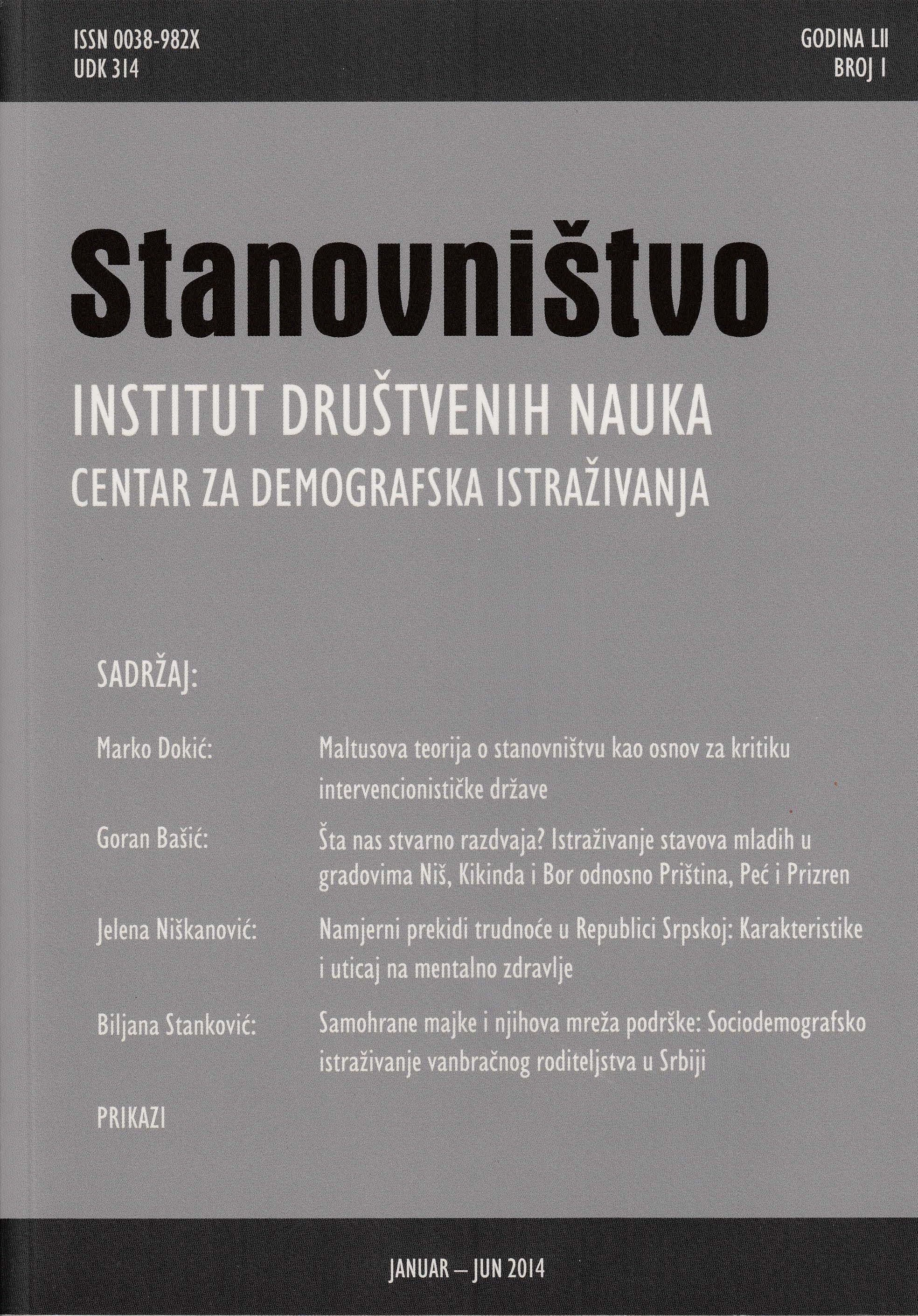Samohrane majke i njihova mreža podrške: Socio-demografsko istraživanje vanbračnog roditeljstva u Srbiji
Lone Mothers and their Network Support: Socio-demographic Research of Nonmarital Parenthood in Serbia
Author(s): Biljana B. StankovićSubject(s): Social Sciences, Sociology, Social psychology and group interaction, Evaluation research, Family and social welfare, Demography and human biology, Social Norms / Social Control
Published by: Институт друштвених наука
Keywords: nonmarital childbearing; lone mothers; nonresident fathers; social support
Summary/Abstract: The aim of this paper is to identify and describe the difficulties faced by families with nonmarital children (especially single-parent), available help and support, participation of the father in raising a child, and expected institutional help. That represents a first step toward better understanding of these families. The paper presents part of the results of research carried out in Belgrade with the aim of insight into the phenomenon of nonmarital childbearing at the individual level. It was conducted on a sample of 100 respondents, mothers of nonmarital children, who attend preschool. The survey was anonymous, carried out by the interview method. For this purpose a questionnaire with more than 50 questions was made, standardized to a great extent.In this paper, the focus is on the hardships and needs of the group of lone mothers. Though some issues take into account the answers of all respondents (21 cohabited mothers and 79 lone mothers), the analysis is largely related to the experiences and reflections of lone mothers. The 2011 Census data on prevalence of consensual unions and characteristics of persons living in them, as well as earlier data on the acknowledgment of paternity, do not indicate that nonmarital childbearing in Serbia takes place primarily in stable unions. It is realistic to assume that a large percentage of mothers with nonmarital children are lone mothers.The research results are generally consistent with the findings of relevant studies from our and foreign countries. As the largest difficulties, lone mothers emphasize financial problems, unemployment, housing difficulties, and child care, as well as a pronounced feeling of loneliness. Most of them in solving problems and rising children rely on their parents and siblings, with whom they often live in the same household. Every fifth lone mother when faced with a major problem, and every ninth in everyday raising a child can count on the father of the child. About a third of the children have no contact with their father, and as many fathers do not make any financial contribution. Actually, insufficient presence and participation of the father, in the lives of children and in daily performing parental responsibilities of their mothers, is one of the most important aspects that deserve the attention of researchers and policy-makers when it comes to lone mothers with unmarital children. The realization of children's rights in relation to financing and visitation the fathers after parental separation, is far more difficult than in divorced or widowed single-parent families. Some considerations about measures of state and local community support can be based on the selected research results presented in this paper. Support measures are possible in multiple domains, social policy (financial support and assistance in employment), institutions of preschool education, as well as in health, education, pre-school and social system counseling services. Greater involvement of men in family life and parenthood stands out as a very important objective, as well as motivation of fathers to involve in raising their nonresident children, including financial support. Three-quarters of the total number of respondents expect the state support to lone unmarried mothers. Three-quarters of lone mothers and one third of cohabited mothers expressed the need for state assistance in solving their own most important existential issues.
Journal: Stanovništvo
- Issue Year: 52/2014
- Issue No: 1
- Page Range: 55-76
- Page Count: 22
- Language: Serbian

